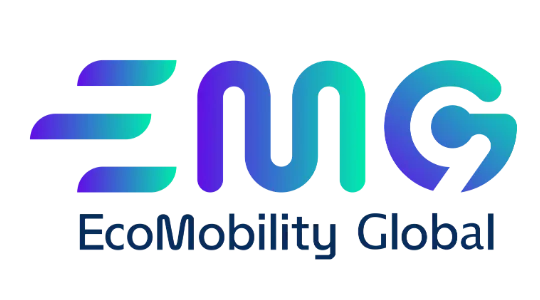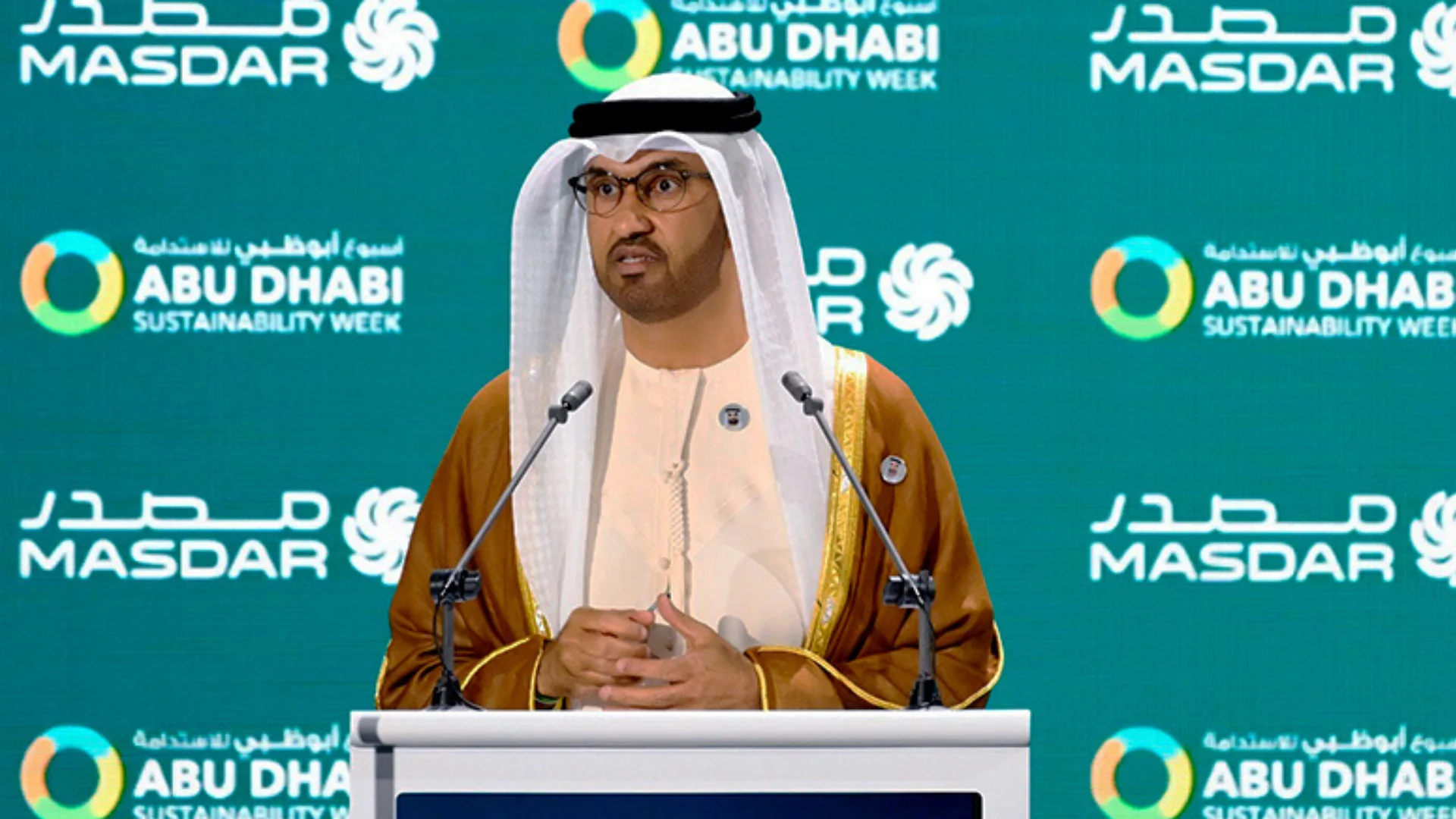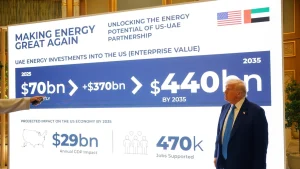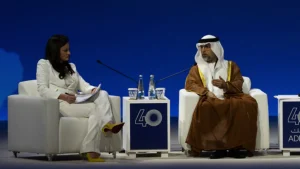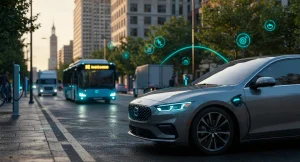Abu Dhabi clean energy company Masdar will combine 5 GW of solar with 19 GWh of battery storage. This setup will generate 1 GW of uninterrupted clean power. Dr. Sultan Al Jaber, Minister of Industry and Advanced Technology and Masdar chairman, said, ‘Intermittency has been the biggest barrier to renewable energy for decades. Indeed, this is the moonshot challenge of our time. How can we power a world that never sleeps with energy sources that do? How can we transform renewable resources into reliable power?”
He added, “This project will, for the first time, turn renewable energy into baseload power. In effect, it is a first step that could become a giant leap.” The project, in partnership with the Emirates Water and Electricity Company (EWEC), will cover 90 square kilometers in Abu Dhabi. It will cost an estimated $6 billion and start operations in 2027. Consequently, EVIS and EMG, co-located in Abu Dhabi in 2026, will use this breakthrough to explore how energy systems can meet the needs of a rapidly electrifying transport sector.
Abdulaziz Alobaidli, Masdar’s COO, called it the company’s ‘most ambitious project to date.’ He added that financing will follow Abu Dhabi’s model of equity and project debt. As a result, projects like this at EVIS Abu Dhabi and EcoMobility Global show how infrastructure investment drives the global shift to sustainable mobility.
Meanwhile, global pressure to meet energy goals is rising. Under the Paris Agreement, countries pledged to limit warming to 1.5°C. Therefore, achieving this requires tripling renewable energy capacity and doubling energy efficiency by 2030. Francesco La Camera, IRENA’s director general, warned that the world is off track. He urged stronger policy and market alignment to support renewables. Thus, EVIS and EMG will highlight such warnings, helping policymakers and innovators accelerate collective action.
IRENA estimates that international renewable energy investment must triple to $1.5 trillion annually by 2030. However, even with record spending of $570 billion in 2023, national plans will deliver only half the needed growth. This leaves a potential 3.8-terawatt shortfall by the decade’s end. Consequently, platforms like EVIS and EMG can help catalyze new collaborations and funding strategies. Consequently, platforms like EVIS and EMG help catalyze new collaborations and funding strategies to close this gap.
The UAE is stepping up efforts under Energy Strategy 2050. It plans investments of Dh150–200 billion ($40.8–54.5 billion) by 2030. Dr. Amna Al Dahak, Minister of Climate Change and Environment, said the country doubled its renewable energy capacity in the past two years. She added that the UAE targets 19.8 GW of clean energy by 2030. Thus, EVIS and EMG show international participants how ambitious national targets translate into large-scale projects.
Dr. Al Jaber noted that rising demand remains a major challenge. “Battery storage is the fastest-growing energy technology today. This year, the grid will gain 100 GW of storage. Yet, this meets only a small fraction of power demand, driven by megatrends and the surge in AI.” Therefore, experts at EVIS Abu Dhabi will explore how AI-driven demand and clean energy supply intersect. They will examine how this intersection can reshape mobility and infrastructure.
Moreover, he explained that before the AI boom, demand was expected to rise from 9,000 GW to 15,000 GW by 2035. However, generative AI could push demand even higher. “For instance, apps like ChatGPT grow by half a billion visits each month and use ten times the energy of a single Google search. Consequently, by 2050, demand could reach 35,000 GW — an increase of over 250%. Therefore, EVIS and EMG will host discussions on how energy and transport can adapt to this rapid growth in digital consumption.”
Dr. Al Jaber emphasized the need for a balanced energy mix. “No single energy source can meet this unprecedented demand. Indeed, policies that limit options too early are self-defeating. Simply put, we need an ‘and-and’ approach.” EVIS Abu Dhabi 2026 and EcoMobility Global, held on 13–14 October 2026 at ADNEC, will bring global leaders together to debate, refine, and share strategies with decision-makers shaping the future of clean transport and sustainable energy.
Source: https://www.thenationalnews.com/business/energy/2025/01/14/uae-worlds-first-renewable/
